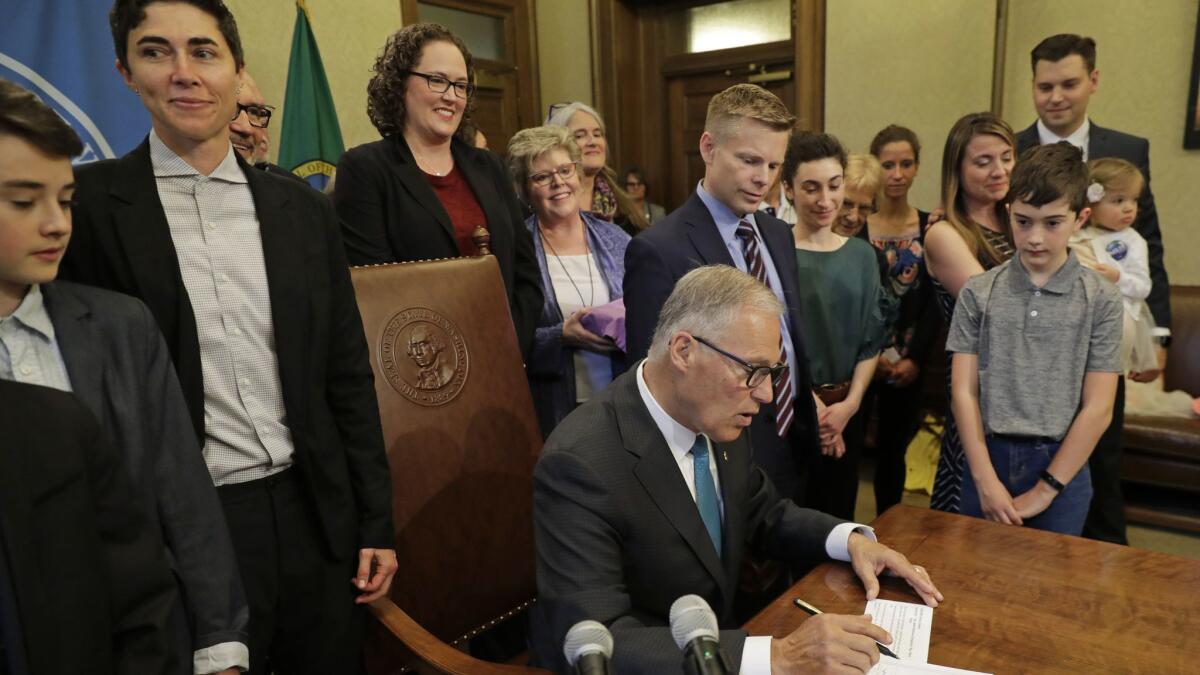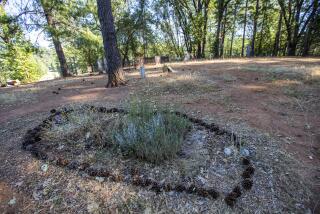Washington state legalizes ‘human composting’

- Share via
Reporting from Ellensburg, Wash. — Washington has become the first state to legalize “human composting,” an alternative to conventional burial and cremation that produces topsoil suitable for gardening.
Gov. Jay Inslee signed legislation Tuesday permitting the practice, described by proponents as an eco-friendly form of final disposition. Inslee, a Democrat, is making climate change the focus of his presidential campaign, and advocates calculate that natural organic reduction — as composting is more delicately termed — will save about a ton of carbon emissions for each body.
The law, set to take effect May 1, 2020, paves the way for a Seattle business to build the nation’s first funeral home offering the service. The company, called Recompose, will place bodies in steel vessels with wood chips, alfalfa and straw, enabling microbes to break down bodies into soil in about a month.
Recompose plans to charge about $5,500, more than no-frills cremation and less than burial in a casket.
The company’s chief executive, Katrina Spade, said Tuesday that she hoped to open a Seattle outlet by the end of next year. “This will be the first place that we know of in the world where this option will be offered to people,” she said.
The bill authorizing the practice passed Washington’s legislative chambers with bipartisan majorities. But the Catholic Church opposed the measure, maintaining that composting did not show sufficient respect for the deceased.
Washington’s funeral industry is split concerning the practice, but history has shown that undertakers can change their views.
Nationally, many funeral businesses traditionally opposed cremation, but the practice of reducing bodies to ashes began gaining acceptance during the 1960s and now accounts for about half of dispositions.
At 78%, Washington has the country’s highest rate of cremation. The state has a strong environmental ethic and below-average participation in organized religion, factors conducive to support for human composting.
The law that Inslee signed in Olympia, the state capital, also permits a process called alkaline hydrolysis, in which bodies are broken down in water and lye. It is already legal in some states.
Both hydrolysis and composting differ from green burial, in which bodies are interred without embalming or headstones, sometimes in biodegradable caskets. Composting a human body produces a couple of wheelbarrows full of topsoil, which can be used in planting trees, flowers or even vegetables.
More to Read
Sign up for Essential California
The most important California stories and recommendations in your inbox every morning.
You may occasionally receive promotional content from the Los Angeles Times.











